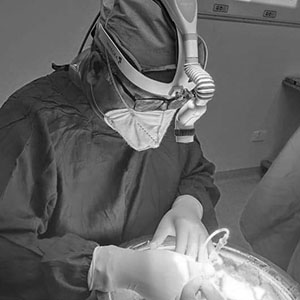Follow up visits after transplant
- Visit every 3rd Day for 1st 2 weeks (Week 1-2).
- Visit every 7th day(weekly) for next 4 weeks (week 3-6).
- Visit every 14th day (biweekly) for next 6 weeks (week 7- 12).
- Then visit every month for next 3 months with investigation as advised (Month 4th-6th).
- Then visit every 2 months for next 6 months with investigations as advised (Month 7th-12th).
- Then visit every 3 months after 1 year with investigation as advised.
| Duration after transplant | Visit |
| 1st 2 weeks (Week 1-2) | every 3rd Day |
| next 4 weeks (week 3-6) | every 7th Day |
| next 6 weeks (week 7- 12) | every 14th Day |
| (Month 4th-6th) | every month |
| (Month 7th-12th) | every 2 months |
| after 1 year | every 2 months |
- The above follow up protocol can be modified by your transplant doctor or treating team as and when needed depending upon the lab parameters.
- Record your blood pressure and blood sugar, weight at home and maintain chart/diary.
- Different kind of tests are usually advised are CBC, KFT, LFT, RBS, Urine Routine, Urine ACR & Tac Levels as and when needed in each visit.
- Level of Tacrolimus/ cyclosopirine need to be maintained in blood and it will be regularly checked with blood samples as directed by your transplant doctor.
- Tacrolimus (TAC) Level sample is to be given 12 hrs after the last night dose, 10-15 minutes before the morning dose to be taken (EDTA Vacutainer, Lavender colour, 3ml). e.g. if you have taken medicine at 9 pm last night, you can give sample between 9.40am to 8.45am and have medicine at 9 am.
Promptly report and treat any infection
- Discuss any new medication prescribed by other doctor, with your transplant Doctor or treating team.
- Avoid over the counter medication without proper prescription.
- Perform monthly self-breast or testicular exams – report in case you feel any abnormal lump or swelling.
If you experience any of these symptoms, contact your doctor
- Fever >100.5 F
- Diarrhea/vomiting
- Constant cough
- Sores or discharge around the private areas (perineum).
- Rash or other skin changes
- Burning sensation upon urination
- Yellow, tan or green mucous
- Sores in the mouth or throat
- Rapid weight loss or gain
- Blood in stool or urine or black tarry stool
- Headache or sudden change in vision
- Rashes or easy bruising
- Rapid heart beat, chest pain, shortness of breath
- Leg or calf swelling or numbness on one side of body or face
Get An Expert Consultation
* Kidney Transplant
* Robotic Kidney Transplant
* SWAP Kidney Transplant
* ABO Incompatible Transplant
* AV Fistula
* CAPD Cather Insertion
drvarunmittal@yahoo.com
